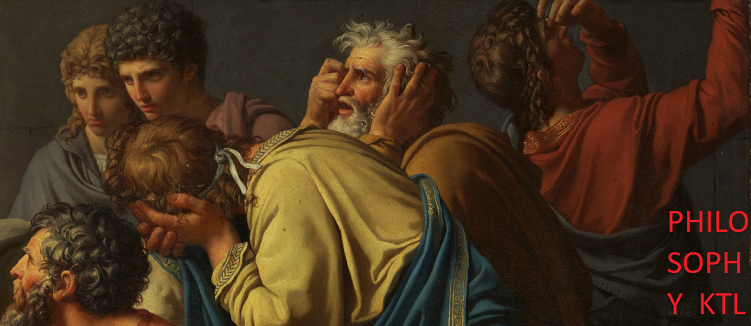But neither term [to einai or ten ousian] allows for the inference that the Good causes to exist in the sense of bringing into being the Ideas. That would be disastrous for the entire doctrine. Socrates must mean that the Good is a necessary condition for the being of Ideas, but a condition that always obtains. It would be very difficult to say exactly what this means, but I take the general sense to be this: Being (in the sense of beingness, not existence) is good; it is better that the cosmos exist than that it not exist, for more than one reason but primarily because this makes philosophy possible, and it is philosophy that redeems and sanctifies life. On the other hand, if there were no life, such redemption would be unnecessary. Plato's view is very likely that philosophy itself justifies the existence of the cosmos.Did Plato ever give a definition of the pious? In the Republic, where we can turn for definitions—albeit provisional ones—of the other virtues. But we can find no definition of piety there, or even in the dialog of which piety is ostensibly the theme. The closest the Euthyphro will bring us is to suggest that piety is that part of justice (complete virtue) which concerns care of the gods, intending by this service of them. But Euthyphro categorically refuses to speculate on what work of the gods we might give our service to, recurring instead to a feeble catalog of pious observances.
This marked silence on the work of the gods is perhaps endemic in Plato's works. At least, it is notably omitted in the Republic as well as in the Euthyphro. When Plato considers the ways in which a god might turn falsehoods to use, he considers only whether a god has a need [to supply gaps in the historical record] or something to gain [by protecting himself from enemies or mad friends] (the two possibilities which remain for piety after service in the gods' work is left behind). The gods have no ignorance of history, no enemies or mad friends. But what of their work? Is it not embattled on an earth in which the bad outweighs the good?
A world, if Rosen is correct about Plato's vision of it, which is an egregious (even logically impossible) error on the part of its sources, unless by some miraculous rescue it comes to bear philosophy—which is up to us.
If we cannot distinguish "the piety of thinking" from this sort of anthropogenic redemption of the divine origin of the world, we must reject it (even if this means rejecting our beloved Plato) as blasphemous.
